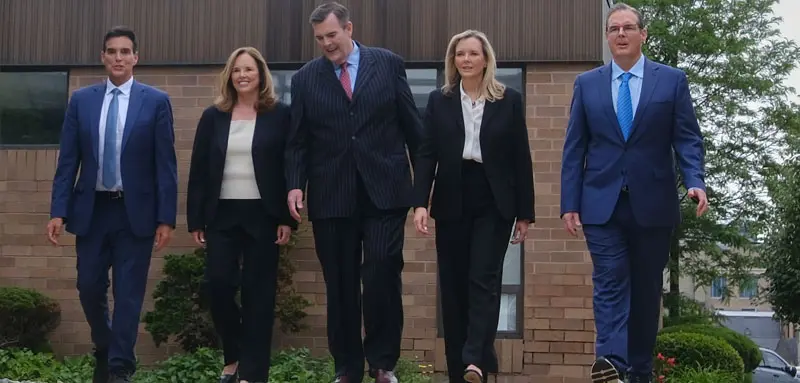What Is Sepsis and Why Is It So Dangerous in Nursing Homes?
Sepsis is a serious medical condition resulting from the body’s extreme response to infection. It can cause tissue damage, organ failure, septic shock, and death, especially when left untreated. Sepsis in nursing home settings can be particularly dangerous, as it can escalate quickly due to age, underlying health conditions, and immune system vulnerabilities. However, sepsis is often avoidable among nursing home residents when staff respond appropriately to early warning signs and provide timely medical care.
Unfortunately, nursing home abuse and neglect continue to be significant problems. Families may discover that a mild case turned into severe sepsis because nursing home staff members didn’t properly monitor their loved ones. Poor hygiene practices, untreated wounds, and a lack of medical attention can lead to serious health complications and in some cases medical emergencies.
Legal action may be warranted in these circumstances. At Munley Law, we can review your case and help you file a nursing home negligence claim or lawsuit to seek compensation for medical bills and related losses and struggles your loved one may face due to developing sepsis in a nursing home.

How Infections Turn into Fatal Outcomes
Sepsis usually begins with a localized infection. For example, sepsis in nursing homes may result from bedsores, urinary tract infections (UTIs), pneumonia, or infected wounds. An infection can spread throughout the bloodstream if it is not treated promptly. It can overwhelm the body’s defenses when this happens.
Common sources of infection in nursing homes include:
- Poorly managed pressure ulcers (bedsores)
- Unsanitary catheter use
- Unclean wound dressing changes
- Lack of hygiene assistance
- Respiratory infections that go untreated
- Diabetic ulcers
The danger of severe sepsis increases when staff do not adequately monitor residents for signs of infection, such as fever, increased heart rate, confusion, or changes in breathing. Sometimes, nursing home staff members attribute these symptoms to aging or dementia. They may miss or dismiss infections until it’s too late when this happens.
Signs That a Loved One’s Sepsis May Be Linked to Neglect
Nursing home staff should be trained to observe and report even subtle changes in a resident’s health status. Infections may get overlooked when this system breaks down. If a resident isn’t receiving adequate attention, an infection may go unnoticed until it develops into a medical emergency and life-threatening condition. Some red flags that may indicate your loved one developed sepsis due to inadequate care include:
- A delayed response to obvious signs of illness
- Repeated infections that go untreated or are poorly managed
- Bedsores that are not properly cleaned or dressed
- Sudden hospitalization after staff dismissed prior complaints or symptoms
- Dehydration or malnutrition at the time of diagnosis
- Medical records showing inconsistent monitoring or gaps in care
Families shouldn’t assume sepsis is just a natural progression of illness in aging patients. Did a loved one suddenly worsen or pass away from infection-related complications? If so, it is worth asking whether the staff took reasonable steps to protect them.
Preventing Sepsis Requires Diligent, Consistent Care
Basic protocols can fall by the wayside when nursing homes are understaffed, overworked, or poorly trained. It is often the most vulnerable residents who pay the price. Preventing serious infections isn’t about expensive interventions. Guarding against sepsis is about consistent, attentive care. This includes:
- Frequent repositioning of bedridden residents to prevent pressure sores
- Timely medical intervention when infections are suspected
- Clean linens and hygienic restroom assistance
- Monitoring for signs of fever, pain, or confusion
- Prompt response to abnormal lab results
- Adequate hydration and nutrition to support immune function, particularly for those patients with weakened immune systems
Legal Accountability for Preventable Sepsis Cases
The facility may be held liable when a resident’s infection develops into sepsis because staff failed to take reasonable precautions and give immediate treatment. In these cases, families may be entitled to compensation for:
- Pain and suffering of the resident
- Medical expenses related to emergency care or hospitalization
- Wrongful death damages, if sepsis resulted in a fatality
- Punitive damages in cases of gross neglect
Filing a claim can also serve a greater purpose: helping to prevent future harm by holding the facility accountable. Families who pursue legal action often discover that their loved one’s experience was not an isolated incident, but part of a pattern of poor care. Reporting an incident and seeking legal accountability can help spur better practices that prevent sepsis in nursing homes and future infections.
Your Rights When a Loved One Develops a Life-Threatening Infection
Federal and state laws require nursing homes to provide adequate medical care and maintain sanitary conditions that prevent severe infections. These laws exist to protect residents from harm. This includes preventable infections.
Was your loved one diagnosed with sepsis in a nursing home? Do you suspect it resulted from neglect or poor medical attention? If so, you have the right to:
- Request medical records
- File a complaint with the state regulatory agency
- Pursue a civil claim for damages
It’s important to act quickly, both to protect your legal rights and to hold the facility accountable before additional residents are harmed.

How Munley Law Can Help
Filing a claim or lawsuit is an option to consider if a nursing home fails to identify sepsis. Be aware that you don’t have to file a nursing home sepsis lawsuit on your own. Our team at Munley Law can hold nursing homes accountable. Reasons to choose us include:
- We have a consistent track record of securing compensation for our clients both through out-of-court settlements and jury awards.
- Our team has served the area for 65 years and counting. We’ve remained in business by doing right by our clients.
- We operate on a contingency fee basis. Our fee is a percentage of the compensation you receive. If you get nothing, you owe us nothing.
Munley Law understands the pain and outrage families feel when a loved one suffers serious harm due to substandard care. Our legal team has the experience, resources, and compassion to pursue justice in cases of preventable sepsis and other forms of nursing home neglect. We work with medical experts, review facility records, and investigate thoroughly to build strong, evidence-backed cases.
Whether your loved one survived a sepsis diagnosis or passed away from complications, we can help you understand your options and take the next step toward justice.
Take Action Today
If someone you love developed a life-threatening infection while residing in a long-term care facility, don’t wait to get answers. The consequences of neglect for elderly patients are too serious to ignore.
Contact Munley Law today for a free consultation. We will listen to your concerns, review the facts of your case, and help you determine whether legal action is appropriate. There are no fees unless we win.









